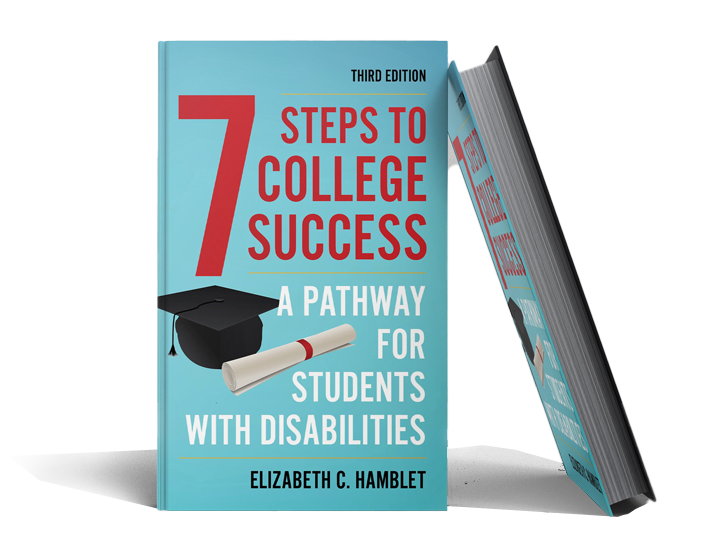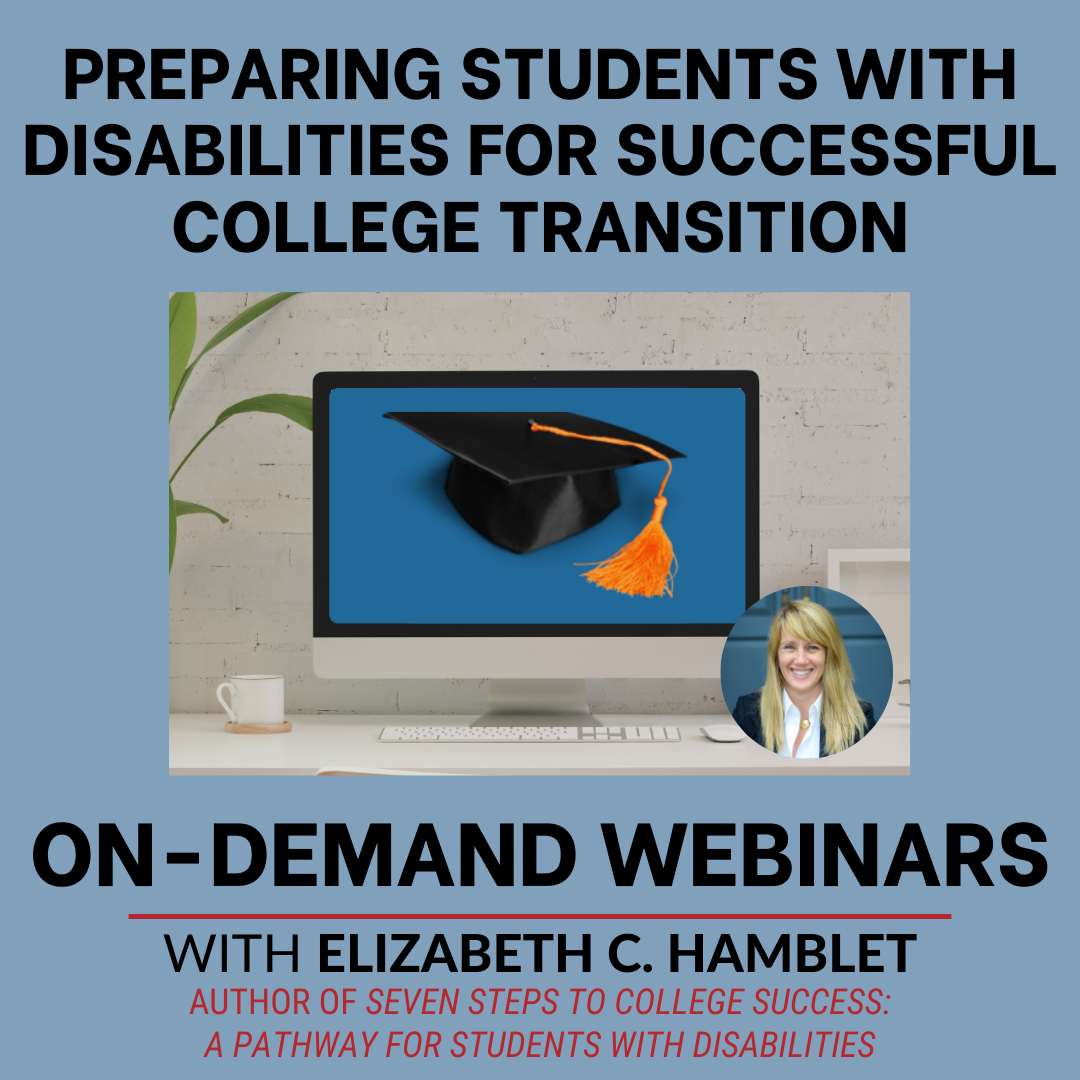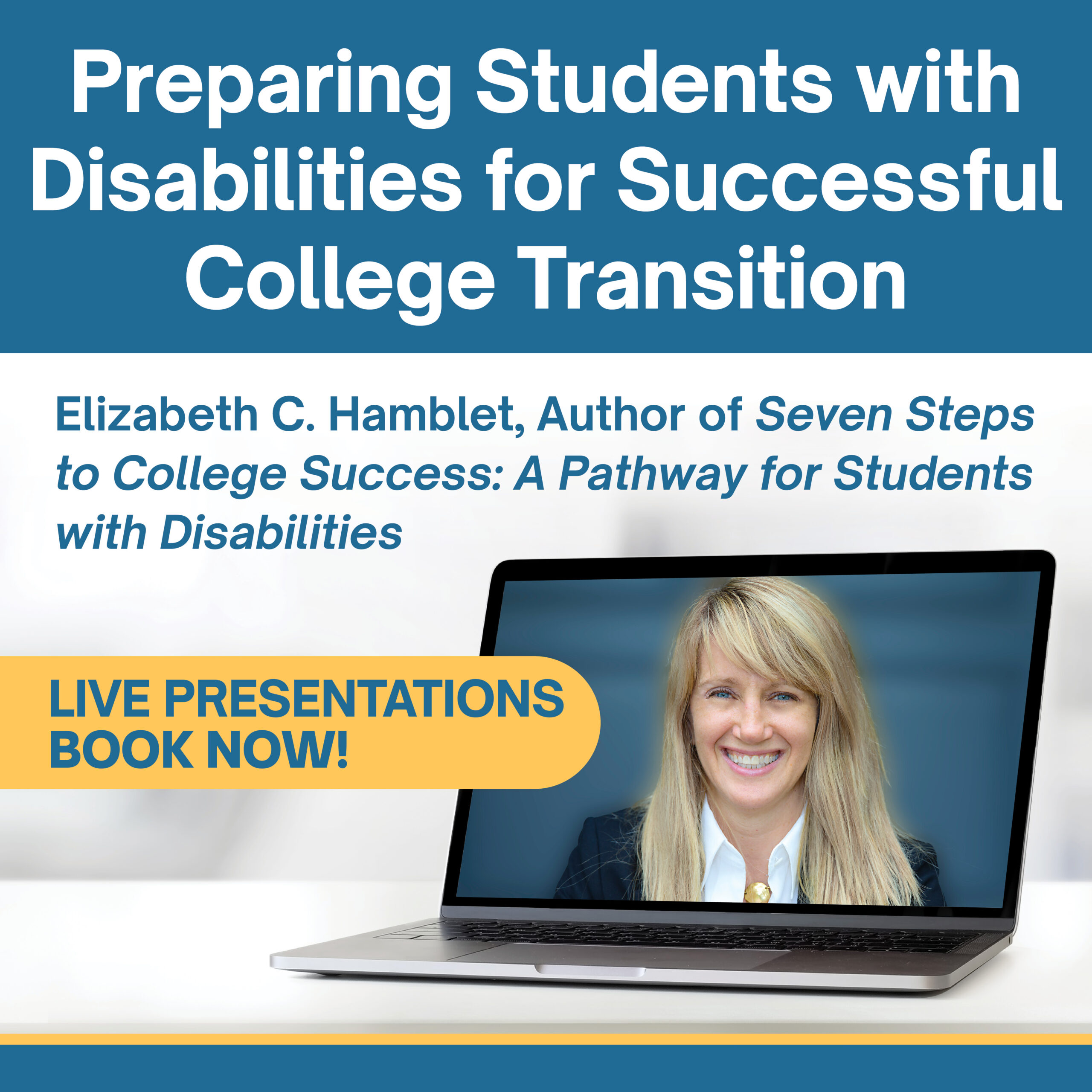Introduction
When students with disabilities transition to college, they may find some accommodations they’d previously received are not available, and supports may be different. For students with autism, who may receive numerous in-school supports, this is important to know. Jane Thierfeld Brown is director and co-founder of College Autism Spectrum (CAS) consulting group. Lorraine Wolf is the former director of Disability Services at Boston University and also a co-founder of CAS. Brown and Wolf are internationally-recongized speakers and co-authors of The Parent’s Guide to College for Students on the Autism Spectrum. When I interviewed them for my book, I asked them what professionals (and families) should be thinking about when it comes to accommodations and supports students are receiving in high school, and what skills they should be developing.What can schools do to help prepare students with autism for successful college transition?
Brown: Start early!
I did a project over four years with the State of Pennsylvania. At the Year Two or Three point, we asked a special education director what she had learned about transition. And she said, “I’ve learned we’re really good at making our students good at high school” – meaning they weren’t really preparing them for the changes after high school.
We’re very focused as families and professionals on making the student really good at high school. But it’s also important to think about what’s next.
Students graduate from high school, and some haven’t learned how to study a textbook chapter, how to write their own study guide, how to prepare a breakdown of an assignment. In some cases, the high school team is so focused on helping students earn good grades (sometimes through accommodations not likely to be available) that there isn’t enough focus on making sure students develop these skills. This preparation needs to start a lot earlier.
At the college level, staff at the disability services often don’t have time (or the knowledge and experience) to teach students how to study. To get that kind of assistance, students often have to go to seek the assistance themselves without assistance from anyone. We also need to teach them how to recognize when they need that help.
Is there anything about the college environment that high schools might not think to tell families (or might not know?)
Wolf: It would be helpful if high schools explained that colleges do provide accommodations, but they don’t follow IEPs, and despite what some have heard, colleges don’t follow high school 504 plans, either. [Read this post or watch this video to learn more.] Some accommodations just won’t be available either because they are not appropriate for college (such as study guides), not reasonable (waiving core requirements) or not available (selection of individual professors). [Learn more about accommodations.]
One challenge in the preparation process is that high school faculty and staff members may be unaware of what accommodations are and aren’t feasible at college. Because of this, they may encourage students to ask for things colleges don’t provide, like a study guide, or an aide, or unlimited test time.
And they may not be aware of the change in the level of support and communication. At college, only the student alerts instructors about their needs. No one else does it for them.
If high school professionals could alert families earlier in the high school years, it would make things easier for the student. If they don’t know much about the changes at the college environment, they should seek out this information from reliable sources.
Brown: I think high school professionals should get the families ready for the fact that there isn’t special education at the college level – curriculum and grades won’t be modified. Students have to meet the same requirements as their peers. I think people sometimes know that, but they don’t always think through what that means for the students, so they may not do enough to prepare students for these realities while students are still in high school. And then when students get to college, we have to tell them that they can’t have those modifications.
Also – high schools need to remind families that once students get to college, they’ll have to self-advocate. Up through the high school diploma, parents are advocates and “CEO” of their student’s education, but are they giving time for students to become their own CEO? We know that CEOs don’t become who they are overnight – they need training time.
Sometimes parents think they’ll just get their student what they need in high school and maybe even as they start college. But colleges don’t take accommodation requests from parents – we work with the students. And that’s difficult. Lorre and I are both parents of students who needed accommodations. We understand how hard that is. So it’s important to work on students’ self-advocacy skills while they’re in high school, so they’ll be ready when they transition to college.
What are the accommodations and supports you recommend scaling back on while students are still in high school?
Wolf: I would love if disability services staff were not the first people to tell a family that things are going to be different for these students when they get to college. It can set up an adversarial relationship between the student and our office. It would be so much better for students if someone talked to them before they got here about the differences between what’s considered reasonable at the high school level and the college level.
We recommend scaling back on:
- A one-on-one aide
- Unlimited time
- Extensions on every assignment
- Multiple sets of textbooks
- Forgiveness of spelling and grammatical errors
- Waiving required courses
Brown: I would add:
- Retaking tests until students are happy with their grade
- Study guides
- limiting or modifying home work
Also – sometimes I see plans that say, “All homework done at school.” Maybe their high school has a “homework club” – sort of an after-school study hall. We know students on the spectrum use up their energy at school and need to come home and decompress. But plans have to consider what’s next for these students.
Families ask me – “Who’s going to structure their time, and tell them what they’re supposed to do when?” No one is responsible for that at the college level but the student themselves. It’s hard for them to go from doing all of their work in this structured time and setting to the college environment, where they’re on their own in structuring their time and work.
I spend a lot of time talking to families about readiness. I often ask the student, “Which of the accommodations on your IEP do you actually use?” And it’s usually very few of them.
I know families are too concerned to drop things off the IEP that the student might use. It is worth taking some unused accommodations off the IEP as the student matures, thus allowing them to be more prepared for the college environment.
Read Brown & Wolf’s book, The Parent’s Guide to College for Students on the Autism Spectrum, to learn much more.




